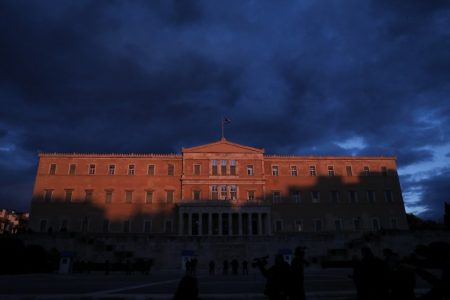If one were to turn back the clock of time, one could locate the origin of the plight of this period.
In March 2014, there was an atmosphere of progress regarding the development of public finances and by taking advantage of this positive climate in the international credit system, Greece made its first successful return to the markets, since 2009.
The Samaras government overestimated the “success” and began constructing political scenarios of growth and leaving the memorandum behind.
Those scenarios were further strengthened after New Democracy’s defeat in the subsequent European elections.
Then, the President of New Democracy – under pressure from the results and the emergent Alexis Tsipras who had stated that he would not consent to the election of a new President and would trigger early elections – abandoned the faithful implementation of the program and strove for a political solution with the creditors and partners. He transferred Yannis Stournaras to the Bank of Greece, installed Gikas Hardouvelis in the Ministry of Finances and incorporated all forms of populism in his government.
Meanwhile, he visited Berlin and in his meeting with Angela Merkel he argued for a political solution to the Greek problem. He was even left with the false impression that he achieved it and systematically began negotiating in political terms.
He counted on closing the fifth review in time and would simultaneously create the necessary political environment to either elect a new President or have a vantage point against Mr. Tsipras in case of an electoral show down.
However, he was twice betrayed in his plans. The country’s position got worse, as the policies that would allow it to return to the markets had been abandoned, while Greece’s allies up to that point abandoned him, simply because they considered him finished and estimated that they should negotiate with his successor.
Unfortunately for the country and the Greek people, Mr. Tsipras was also inspired by the so-called political negotiation – to an unparalleled degree in fact. He believed that with a fresh mandate in his hands he could enforce his will and release the country from the bonds of the Memorandum. As it turned out, this couldn’t be further from the truth.
So that is how Greece missed the opportunity 2014; the previous Parliament did not elect a President, elections took place, Samaras lost to Tsipras, who came to test his strengths and skills at a political negotiation.
For over three months now he has alternated from making threats, backing down and bluff, to no avail. Only last week, under pressure from the empty treasuries, he accepted the value of the technical negotiation and there was a faint light at the end of the tunnel.
Yet again though, he is hesitant and toys with elections and calling a referendum.
Truth be told, the political negotiation is not enough. As a result of it the country has been ungoverned for about a year.
If those in power implemented the program on a rudimentary level, Greece would have been in clear.
That is the bitter truth.
Antonis Karakousis
Originally published in the Sunday print edition





